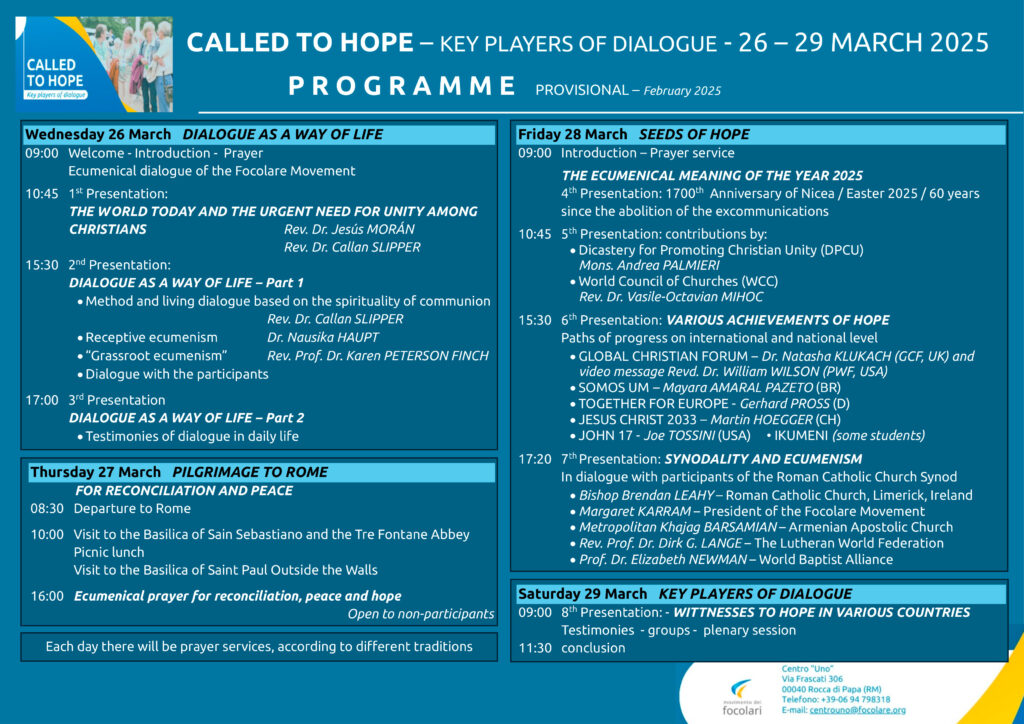Already well-publicised and being experienced around the world by many Catholics is the Jubilee Year which this 2025 has ‘Pilgrims of Hope’ as its theme. Millions of people will visit Rome or the various jubilee churches in dioceses around the world, and experience the grace of God’s mercy by praying for forgiveness, resolving to convert one’s life and passing through the holy door, which symbolically reminds us that Christ is “the door”. Why “Pilgrims of hope”? Because we are called to hope.
Less well-known is the fact that 2025 marks two other important anniversaries of great ecumenical significance – the 1700th anniversary of the Council of Nicaea and the 60th anniversary of the abolition of the mutual excommunications between the Church of Rome and the Church of Constantinople.
Why is it so important to celebrate an ecclesial meeting that took place 1700 years ago? And why have Pope Francis, Ecumenical Patriarch of Constantinople Bartholomew I and other leaders of various Churches chosen to travel to Nicaea in Turkey on 24 May 2025 for a joint commemoration?
Every Sunday, Christians from all the different Churches profess the same faith affirmed at that Council. It was precisely at Nicaea, therefore, that the basis of our faith was sealed, God – One and Triune, Jesus Christ – true Man and true God. Knowing that the churches have this basis in common means that praying for unity is both a prayer to achieve it and a celebration of thanksgiving for the unity already exists.
The Council of Nicaea had also set a date for celebrating Easter but, because of the change of calendar in the West that Pope Gregory XIII introduced, the date of this feast often did not coincide for the Eastern and Western Churches. This year, by a lucky coincidence, the dates do coincide. Easter will fall on 20 April 2025 for everyone. Many Christians around the world, including Pope Francis and Patriarch Bartholomew, are promoting the creation of a common calendar that will allow this feast to always coincide with the centre of the Christian faith.
The Focolare Movement is taking the opportunity to celebrate these anniversaries with an international ecumenical conference entitled “Called to hope – key players of dialogue”. In these times of division and great challenges, we are called as Christians to give witness together to the hope that the Gospel brings and to be key players of dialogue and unity, committed to living for peace, building fraternity and spreading hope. Round tables, interviews and testimonies are intended to offer method and spirituality to the dialogue together with examples of good practice and ecumenical pathways that already exist.

Photo Nicea: © Di QuartierLatin1968 – Opera propria, CC BY-SA 3.0, https://commons.wikimedia.org/w/index.php?curid=4675764




0 Comments